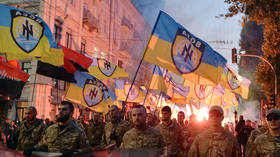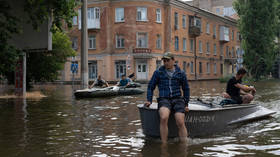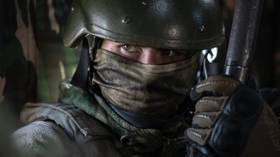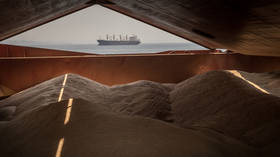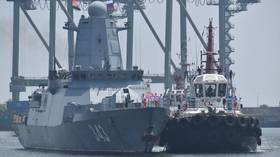Is a new conflict brewing near Ukraine? How a clampdown on anti-NATO opposition figures has raised tensions
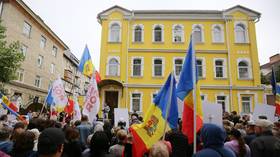
In Moldova, a conflict has broken out between the state authorities and the autonomous region of Gagauzia, where elections were held last month. Disturbed by the fact that two candidates seen as favorable to Moscow competed in the runoff, the Moldovan authorities initiated eight processes on suspicion of illegal financing of the candidates and investigated the activities of the Gagauz Election Commission. Allegations of election violations and threats that the election results would not be recognized by Moldova have caused the authorities of the autonomous region to retaliate. At the end of May, Gagauz politicians delivered an ultimatum to the central authorities and some even expressed readiness to hold an independence referendum.
What caused the conflict between Moldova’s central and regional authorities? And can Ukraine’s neighbor, Gagauzia, really break away from Moldova?
Who are the Gagauz people and what is Gagauzia?
The Gagauz are a relatively small ethnic group (numbering about 250,000 people), most of whom live in Moldova. Historians don’t have a single opinion concerning their origin, but what is known for sure is that the Gagauz people came to their current lands from the Balkans, fleeing from the many wars that shook the peninsula in the 19th century. The Gagauz are Orthodox Christians but their language belongs to the Turkic family. Ethnically, the Gagauz are closer to Bulgarians than to Moldovans and Romanians who make up most of Moldova’s population.
This difference spurred the Gagauz people – who never had an independent republic or autonomous region, even at the time of the Soviet Union – to establish their own state. When Soviet Moldova embarked on a course towards independence and unification with Romania in 1989, the Gagauz people declared their autonomy.
In 1990, together with the better-known Transnistria, the Gagauz did not accept Moldova’s pro-Western and pro-Romanian course. Plans to unite Moldova and Romania sparked a conflict, and the two regions decided to break off and become independent.
While Transnistria engaged in a prolonged armed conflict to defend its independence (and consequently became an unrecognized state), Gagauzia, following a five-year-long political crisis, agreed to be an autonomous region within Moldova. Russia and Turkey helped in this process and acted as intermediaries.
However, such diplomacy and compliance eventually turned against Gagauzia. Some 30 years after the agreements with Moldova were signed, the autonomous region’s authorities became alarmed that Chisinau no longer wished to comply with the pact and intended to terminate it.
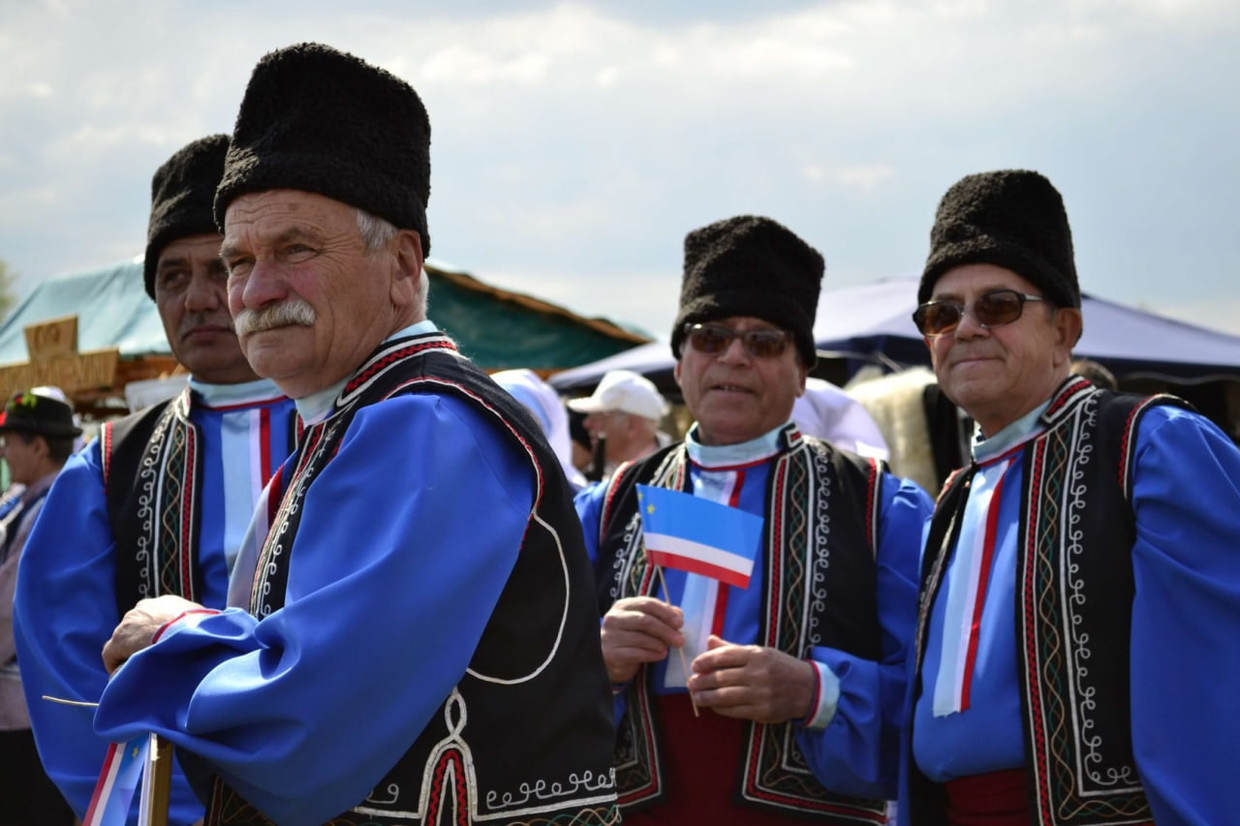
Autonomy under siege
“We see that Gagauzia’s authority is being consistently weakened and can no longer just sit and watch this happening,” said the Chairman of the Gagauz Parliament Dmitry Konstantinov on May 24. At the same time, he requested legal confirmation of the region’s autonomous status from Moldova.
The situation was sparked by the harsh reaction of the Moldovan authorities to the elections in Gagauzia, which took place in May. The two top candidates who competed in the runoff both criticized Chisinau’s current political course and proposed strengthening ties with Russia.
The first candidate was Grigory Uzun – a member of the Party of Socialists of the Republic of Moldova (PSRM), who was backed by the party’s leader, Moldova’s ex-president Igor Dodon. Uzun said, “Gagauzia has always gravitated towards expanding ties with its eastern neighbors, but the current Moldovan authorities aim exclusively at partnering with the West, without other options. But this is the wrong approach.” In a pre-election interview, Uzun also added that Moldova and Russia have “a common history, religion, and culture” and the two countries “simply must be friends.”
In the runoff, Uzun’s opponent, 34-year-old Evghenia Gutul, outpolled him by 4% of the vote and won the election. The elected leader was also quite clear about her position regarding Russia. She plainly stated that her party, Sor, is a “pro-Russian party,” promised to open a representative office of the Gagauz Autonomy in Moscow, and to unblock exports of agricultural products to Russia.
For Moldova’s current leaders who actively support a pro-Romanian and pro-Western course, such views held by the head of one of its regions are absolutely unacceptable. Moldova didn’t hesitate to make this known during the election campaign.
On the eve of the elections for the post of bashkan (governor of Gagauz, the highest political position in the region), law enforcement agencies repeatedly raided the offices of the candidates and members of the Sor opposition party. After Gutul’s victory was announced, members of the National Anti-Corruption Center (NAC) raided the building of the Central Election Commission (CEC), located in the capital Comrat. According to reports, during the searches on May 16 the NAC looked for materials confirming the “bribery of voters.”
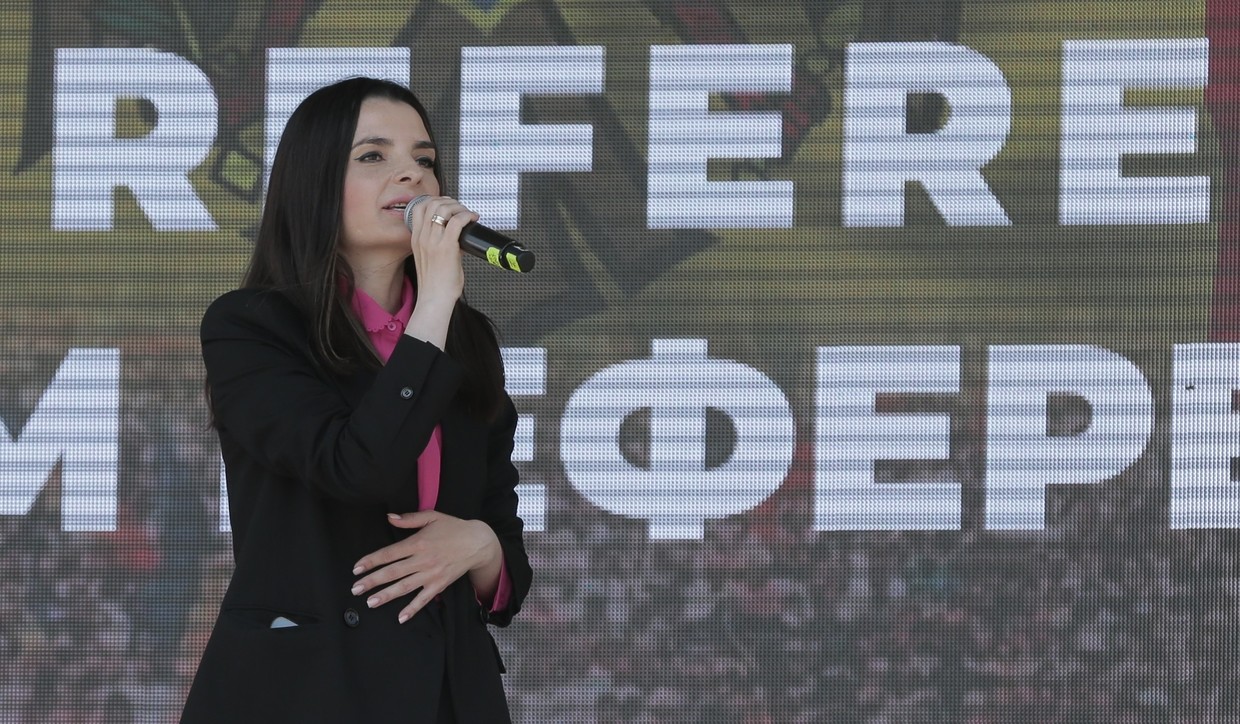
Immediately after the elections in Gagauzia, Moldovan Prime Minister Dorin Recean said they should not be recognized as legitimate. Moreover, deputies from the ruling Party of Action and Solidarity (PAS) said the elected Bashkan Evghenia Gutul would not become a member of the Moldovan government since they didn’t need her there.
A couple of days later, the Moldovan presidential administration nevertheless stated that President Maia Sandu would sign a decree making the elected bashkan of Gagauzia part of the Moldovan government in compliance with all legal procedures. However, this did not lessen the negativity sparked by the previous statements and actions of the Moldovan authorities.
A nationwide issue
The conflict escalated further. On May 21, representatives of the Sor party and local activists held several rallies in Comrat in defense of the election results. They demanded that authorities stop pressuring the opposition, the media, and all those who criticize and disagree with the central party and President Maia Sandu, and called for the preservation of Moldova’s neutrality and the cessation of its process of withdrawal from the CIS. On the same day, the party’s leader Ilan Shor announced rallies in three cities – Balti, Comrat, and Orhei – where a “referendum on the country’s external vector” would be proposed.
The deep involvement of the Sor party in the regional issue isn’t just tied to the fact that its candidate won the election in Gagauzia. It also has a lot to do with the unprecedented pressure that the Sor party has been dealing with lately.
Just four days before the elections, the court started proceedings on verifying the constitutionality of the Sor party. The decision of the Constitutional Court is supposed to seal the fate of the opposition party and determine whether it should be shut down for the first time in the country’s 30-year history.
At first, the court said it would hear the case on May 17. But since then, the verification has been postponed several times. Eventually, the judges announced that they were going to postpone the hearing until June 12.
In fact, the Moldovan government appealed to the court to consider the constitutionality of the Sor party last year, but the legal proceedings began only a few days before the runoff election. According to the opposition leaders, this was because the Sor party supported and led the protests against rising food and fuel prices. The opposition criticized the ruling coalition for not wanting to negotiate more favorable prices for raw materials with Russia.
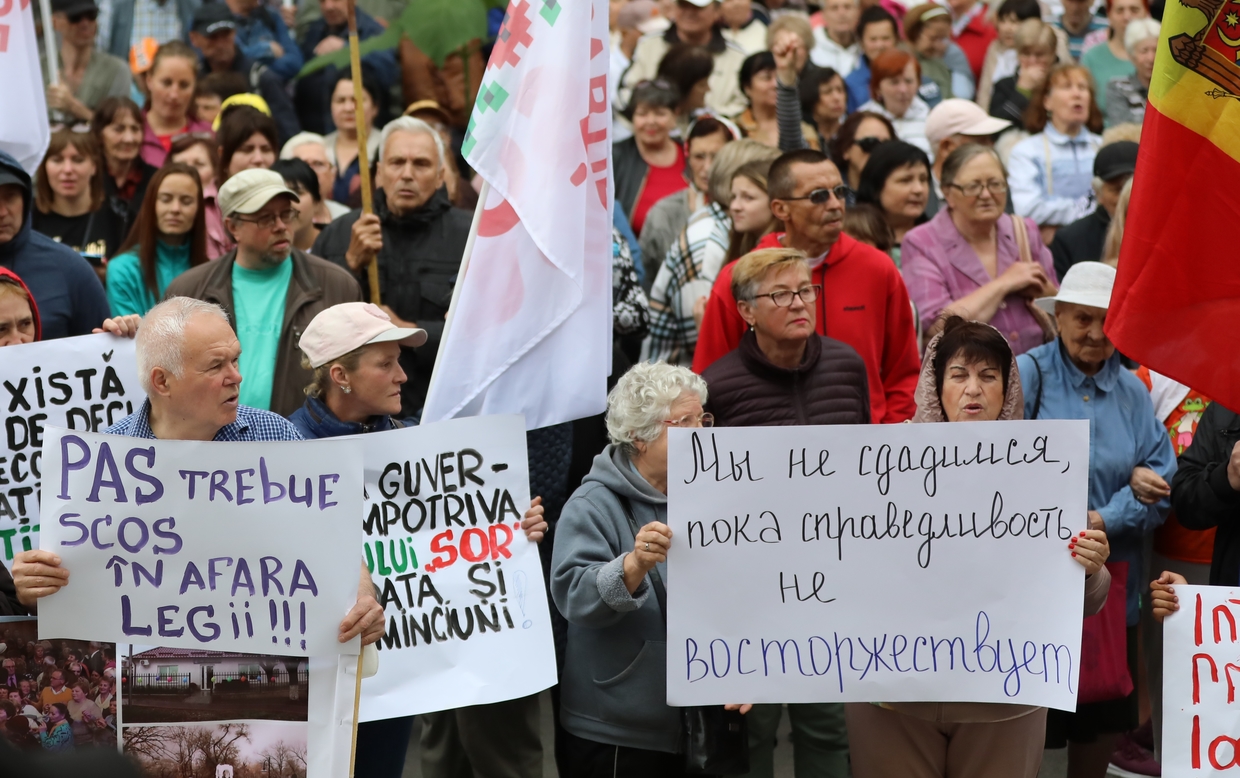
However, despite increasing pressure on the opposition in Gagauzia and Moldova, the ruling Party of Action and Solidarity didn’t put forward any candidate of its own to run for the post of governor in Gagauzia.
“Gagauzia is a region that traditionally supports strong ties with Russia and is largely indifferent to the European integration course declared by Chisinau. So it is obvious that the candidate from the Party of Action and Solidarity would have received the minimum number of votes, at best 100 or 200,” Sergei Manastyrli, head of Chisinau’s Balkan Center for Analysis, Research and Forecasting, told RBC.
The European Union is also attempting to exert pressure on Moldovan parties that favor practical relations with Russia. Recently, the EU began forming a “blacklist” of Moldovan oppositionists and oligarchs. Five Moldovan citizens are about to be sanctioned and their assets will be frozen. All of them are accused of supporting the Russian Federation. The list is topped by the chairman of the Sor party Ilan Shor, its deputy chairman Marina Tauber, and the former leader of the Democratic Party of Moldova, oligarch Vladimir Plahotniuc.
The ‘fifth column’
Pro-Russian sentiments in Gagauzia and Moldova in general are largely driven by economic factors – and it’s not just a matter of discounted energy resource prices, which Moscow traditionally offers to friendly states.
Russia has always been the main market for the autonomous region’s exports, mainly for products of the wine industry. While there are restrictions in place on the import of products from Moldova, products from Gagauzia have easier access to the Russian market. Moldova’s ruling party, however, opposes any joint projects with Russia and tries to limit contacts between the autonomous region and Russia. Apparently, Chisinau has totally different views about Gagauzia’s pro-Moscow sympathies.
In light of the recent scandals, the head of the Gagauz Community of the Republic of Moldova, Nikolai Terzi, also had a say in the conflict. He has accused Moldovan President Maia Sandu of considering all Gagauz residents a “fifth column.”
“I attempted to make a number of proposals on bringing the central government and the Gagauzia ATU closer together to work on the development and strengthening of the state of Moldova, and on finding ways to strengthen the central government’s positions in the region. But I was interrupted by the president, who said that Gagauzia is someone’s ‘fifth column.’ In response to my question whether this is true for the whole of Gagauzia, I received an affirmative answer,” said Terzi.
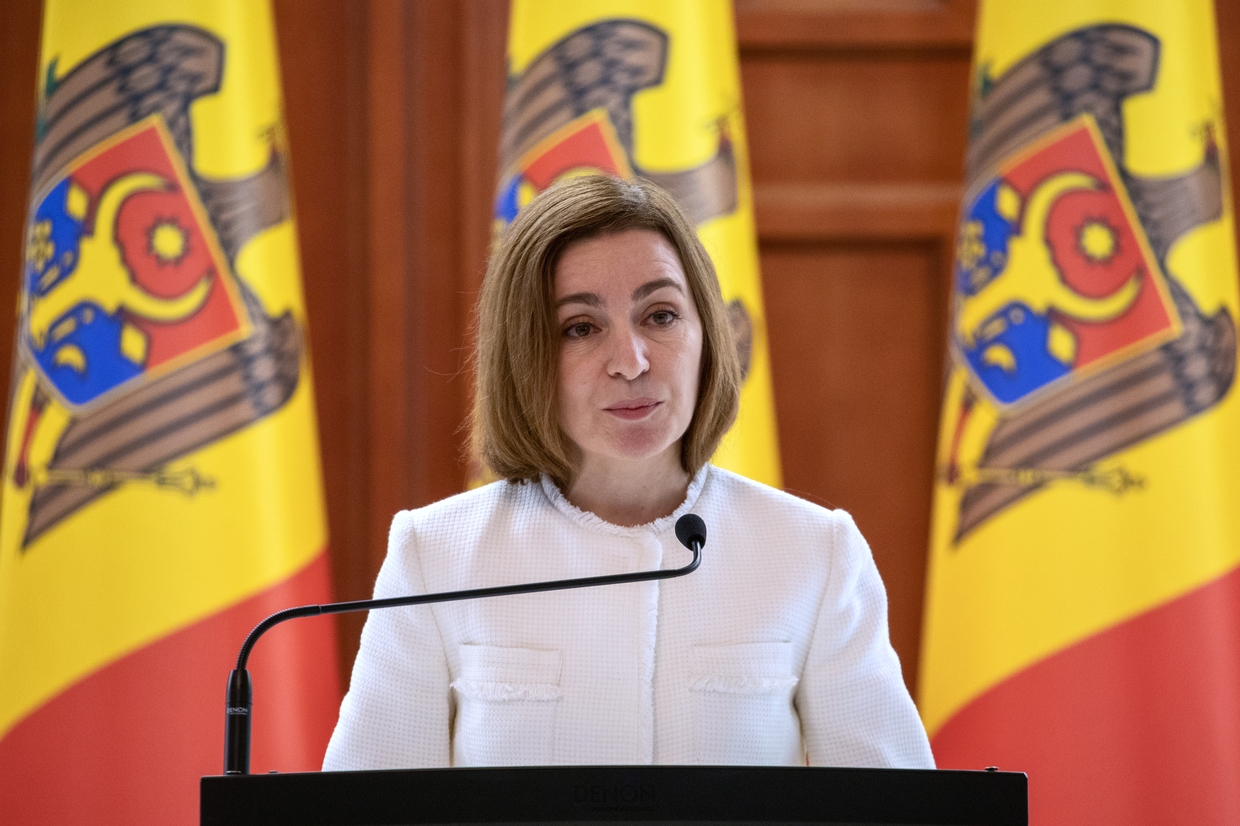
The head of the People’s Assembly of Gagauzia, Dmitry Konstantinov, said he once asked President Maia Sandu why she was in no hurry to visit Gagauzia. According to Konstantinov, her answer was, “We know that you are waiting for the Russians to come.”
Former leader of Gagauzia Mihail Formuzal is skeptical about Evghenia Gutul’s ability to exert considerable influence on the current situation, due to limited authority.
“Even though this position makes her a part of the Moldovan government, she will be a purely decorative element there. She can speak and object, but she has only one vote, while there are 21 people in the government,” he notes. Formuzal adds that “Gagauzia has no real autonomy,” since “Chisinau can control any ministry.” Gagauzia can only speak out about problems within its authority.
He also mentioned that Chisinau could threaten the authorities in Comrat by cutting the funding for road construction.
“Chisinau uses such methods regardless of the government in power. This also happened when I was the bashkan. Some prime ministers did not provide Comrat with money for road construction at all,” Formuzal said.
So far, instead of economic measures, Moldovan authorities prefer to deal with the mounting dissatisfaction in Gagauzia by funding numerous pro-Western NGOs and mass media. According to Formuzal, unprecedented amounts of money are being allocated for these purposes.
“These media resources receive millions of lei in funding. Chisinau is throwing crazy money at this! They harshly criticize the pro-Russian views held by the majority of the Gagauz people, propose joining the European Union and push forward European values. They are very goal-oriented and systematic in their work, which is carried out in both the Russian and Gagauz languages. The staff is selected from among the locals. Generally, they are very successful. I predict that in another eight to ten years of such intensive work, we may have a pro-Western bashkan,” he says.
Despite this, he believes that, presently, the people of Gagauzia are not interested in the ruling party’s pro-European agenda since the standard of living is on the decline.
“Gagauz residents remember how a cubic meter of gas used to cost six lei when the leaders in Chisinau could find a way to get along with Russia. But now we have to pay 30 lei per cubic meter. In such circumstances, how can you explain to people the benefits of liberal democratic reforms? Will they improve your quality of life? Absolutely not!” says Formuzal. He also notes that “people do not see anything positive coming from Chisinau and so treat it with extreme negativity.”
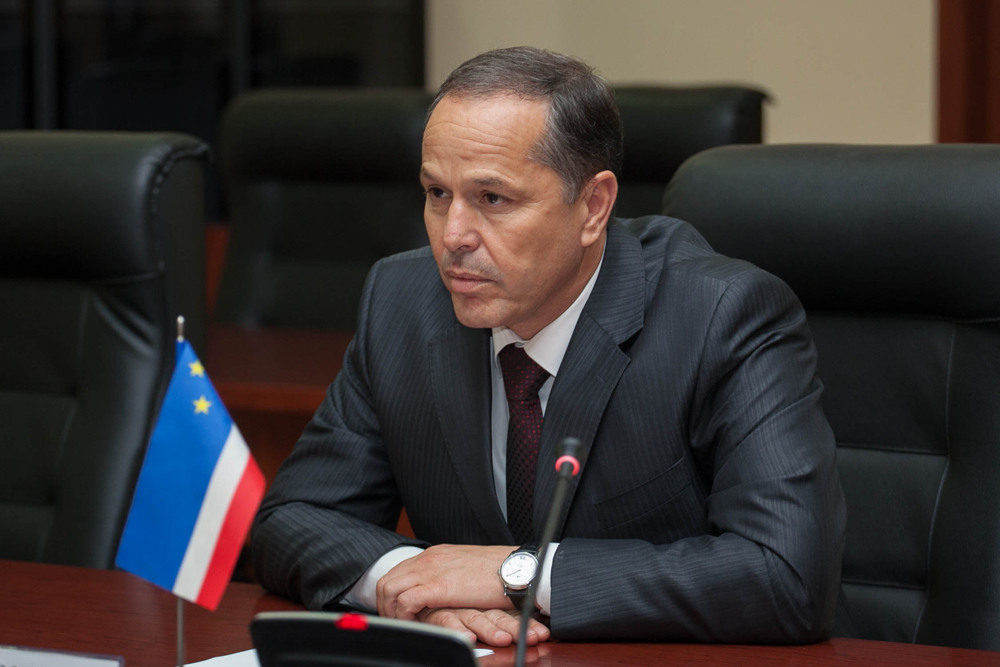
What’s next?
On May 27, a large congress of Gagauz public representatives was held in Comrat. It was attended by local parliamentary deputies of the current and previous convocations, mayors, local councilors, public figures, and the head of the autonomous region.
The congress accused the central authorities, headed by President Maia Sandu, of escalating the situation, violating the rights of Gagauz residents, provoking conflicts, and creating a split in society.
Even the current governor of Gagauzia, Irina Vlah, who is often accused of excessive sympathy towards the central authorities, spoke out in a rather tough manner:
“For the first time in all the years of Gagauzia’s existence, the central government is consistently escalating the situation, provoking conflicts, and setting the Moldovan people against the residents of the [Gagauz] autonomy. The PAS party and President Sandu, set on developing her cult of personality, have split our Moldovan society with their policy. The desire to limit the authority of the autonomous region will lead to an escalated conflict between the central and regional authorities. Starting a fire is easy, putting it out is a lot harder.”
Following the congress, a resolution was adopted that outlined precise requirements for the central authorities. The elected representatives of the Gagauz people demanded several things from Moldova: to give the Law on the Special Legal Status of Gagauzia constitutional status; to align Gagauzia’s autonomous status with the legislation of the Republic of Moldova; to stop illegally blocking the region’s right to exercise authority, as per the Law on the Special Legal Status of Gagauzia; and to stop revoking Gagauz laws in Moldovan courts.
Moreover, the congress wanted Moldova to restore the customs service, the tax inspectorate and other abolished regional structures, to reinstate the prosecutor of Gagauzia as a member of the Supreme Council of Prosecutors, and provide Gagauzia with a quota in the parliament – all within three months.
The most radical demand was to ban the activities of political parties that propose the cessation of Moldova’s status as an independent state. This is a clear hint at the ruling party and President Maia Sandu, who have repeatedly supported the idea of forming a single state out of Moldova and Romania.
The resolution ends with a warning: “We declare that if the central authorities of the Republic of Moldova continue to ignore the legitimate requirement of respecting the competency and authority of Gagauzia and fail to ensure the political and legal status of the Autonomy in the Constitution, the central authorities of the Republic of Moldova will be held fully responsible.”
The resolution did not mention the specific measures that the Gagauz authorities would take, but speaking at the congress, Deputy Nicolai Dudoglo outlined the possible outcome of this conflict:
“Now that all the politicians of Gagauzia are united, Chisinau cannot use them [in its interests]. If Chisinau continues its rhetoric and does not begin a dialogue with Comrat, we should hold a referendum on the independence of Gagauzia. It’s time for a man-to-man conversation.”

